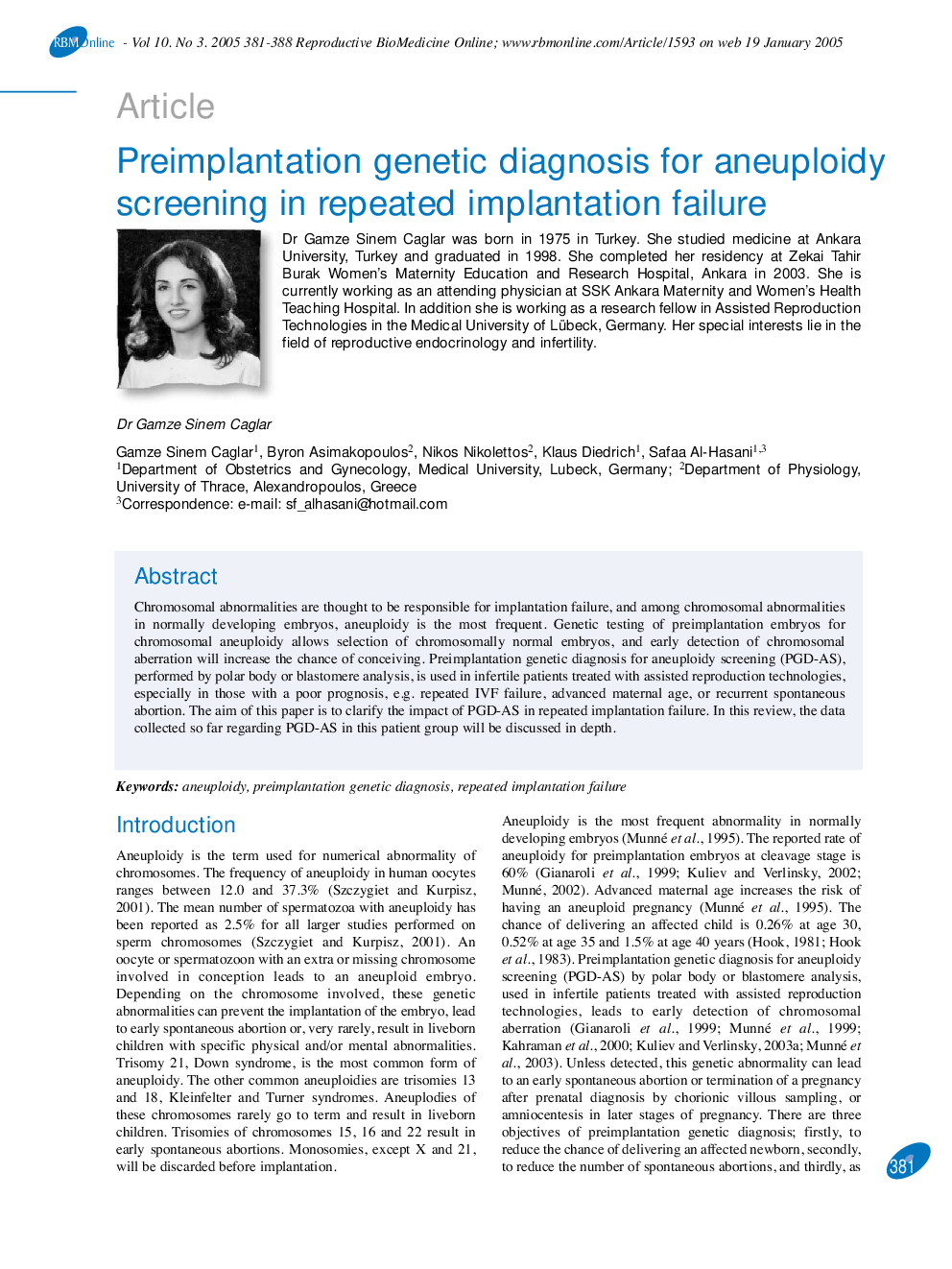| Article ID | Journal | Published Year | Pages | File Type |
|---|---|---|---|---|
| 9335377 | Reproductive BioMedicine Online | 2005 | 8 Pages |
Abstract
Chromosomal abnormalities are thought to be responsible for implantation failure, and among chromosomal abnormalities in normally developing embryos, aneuploidy is the most frequent. Genetic testing of preimplantation embryos for chromosomal aneuploidy allows selection of chromosomally normal embryos, and early detection of chromosomal aberration will increase the chance of conceiving. Preimplantation genetic diagnosis for aneuploidy screening (PGD-AS), performed by polar body or blastomere analysis, is used in infertile patients treated with assisted reproduction technologies, especially in those with a poor prognosis, e.g. repeated IVF failure, advanced maternal age, or recurrent spontaneous abortion. The aim of this paper is to clarify the impact of PGD-AS in repeated implantation failure. In this review, the data collected so far regarding PGD-AS in this patient group will be discussed in depth.
Related Topics
Health Sciences
Medicine and Dentistry
Obstetrics, Gynecology and Women's Health
Authors
Gamze Sinem Caglar, Byron Asimakopoulos, Nikos Nikolettos, Klaus Diedrich, Safaa Al-Hasani,
